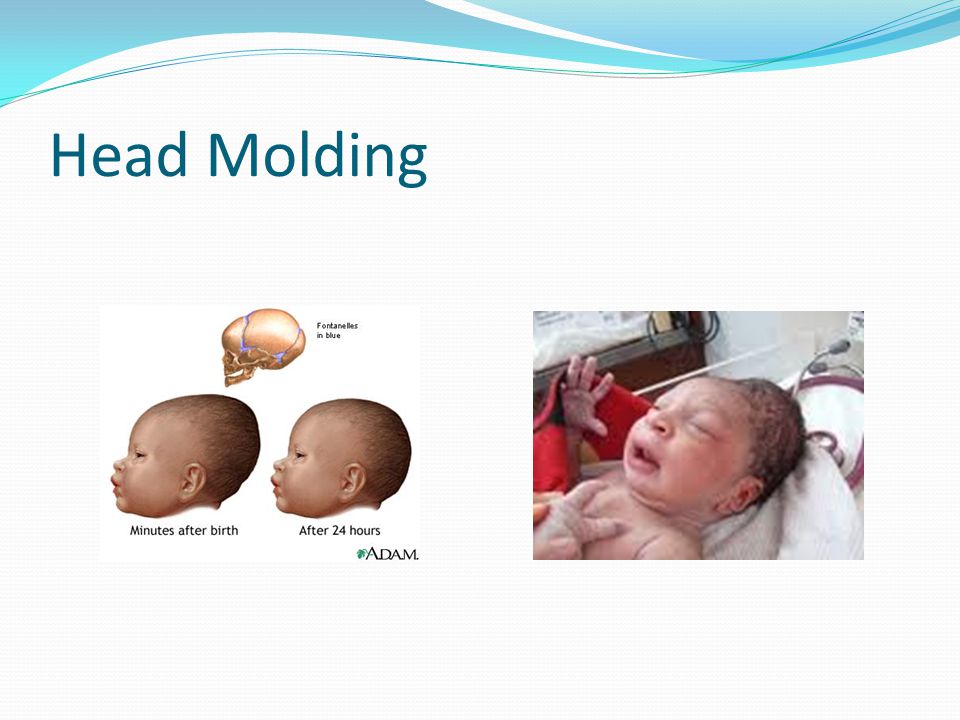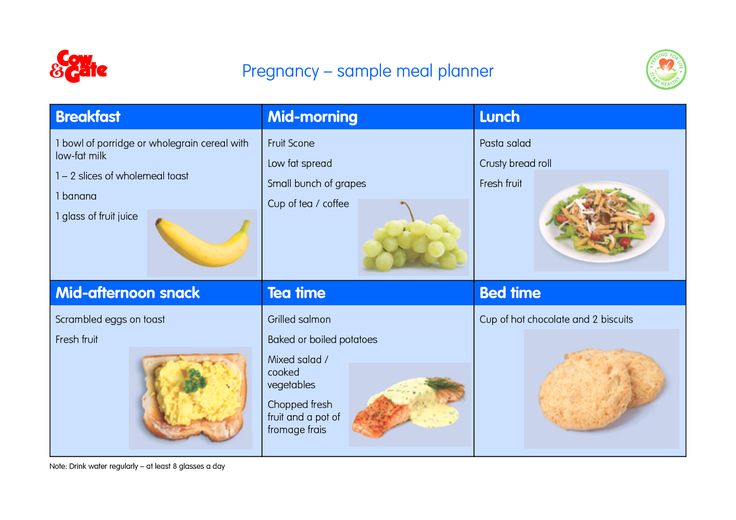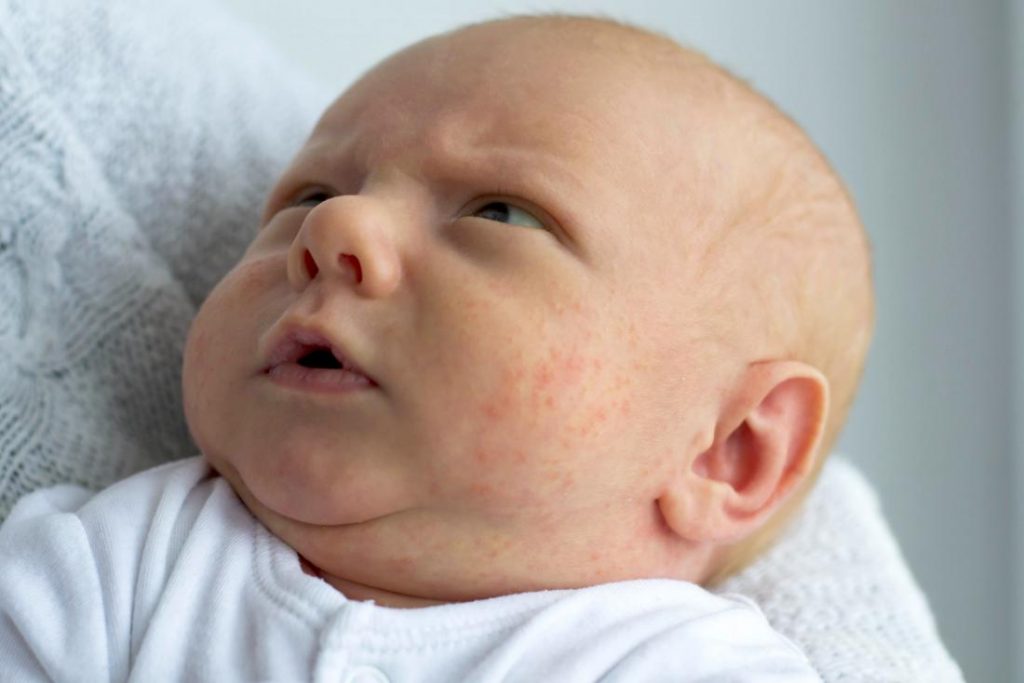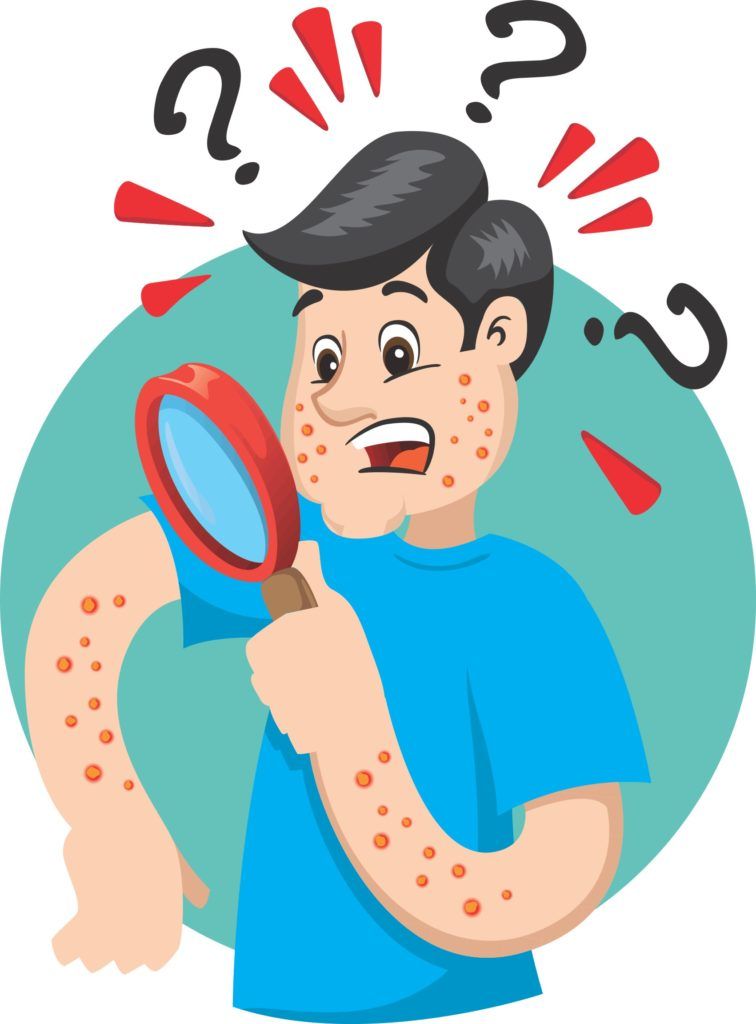Teenage mom help
Helping Teen Parents and Their Children Build Healthy Futures
Teen parents have plenty of obstacles to navigate. Their kids will likely face some too.
The good news is that as a grandparent, there's a lot you can do to help.
It helps to be aware of the possible challenges your teenager may face as a parent. That way, you can help your child meet them head-on.
Challenges adolescent parents may face
Transitioning to parenthood. Becoming a parent isn't easy even when you're an adult with some experience behind you. For teens, it's even more difficult since they're not finished developing themselves. Your teen may feel isolated from and jealous of their friends. They could feel unprepared for parenthood. They might be anxious about their future.
Finishing school. Teen moms aren't as likely to graduate from high school or to go to college.
This can have a negative impact on their—and their children's—future.
Childcare. Finding safe, high-quality childcare may not be affordable.
Inexperience. Children have the greatest physical, emotional, and cognitive development during their first three years of life. This means the interactions they have with their parents and caregivers are crucial during this period. But because teen parents are young and inexperienced, they may not realize how much influence—good or bad—they have on their children's development.
Finding a job. It may be harder to keep or find a job that fits around school and parental responsibilities.
Earning enough money. Research shows that teen mothers tend to earn less than women who have children later in life. They're also more likely to experience poverty.
Negative perceptions.
 There are still negative stereotypes surrounding teen parents. People tend to see adolescent moms as sexually irresponsible and adolescent dads as uninvolved or absent.
There are still negative stereotypes surrounding teen parents. People tend to see adolescent moms as sexually irresponsible and adolescent dads as uninvolved or absent.Depression. Studies indicate that being a teen mother may increase the likelihood of mood disorders like depression. Young fathers are at a higher risk of becoming depressed too. This is probably partly due to factors like learning to become a parent, juggling responsibilities, and stress in relationships with family members, romantic partners, and/or friends. Stress and depression can also put adolescent parents at risk for substance use.
Repeat births. Around 17% of babies born to adolescents are repeat births. Having more than one child as a teenager can intensify the challenges of finishing school, earning enough money, and finding quality childcare. Repeat pregnancies are also associated with a higher risk of low birth weight and infant death.

Health risks of teen parenthood
Adolescent moms and their children have some unique health risks too. This is why it's so important for them both to be under the care of a pediatrician.
Research shows that pregnant teen moms are more at risk of having these complications:
The risks are higher for mothers under the age of 17 years. These complications also seem to be more common in teens that don't have proper prenatal care.
Children of teen parents have some higher risks too, including:
How to help
Yes, there are many challenges and risks involved with being a teenage parent. But as a grandparent, your love and support can make all the difference. Here are some ways to help your child so they can find a healthy, positive life path.
Get regular prenatal care
Seeing an obstetrician regularly helps both mother and baby stay healthy. It also lessens the risk for labor and delivery complications.
Watch out for signs of tobacco use, drinking, or taking drugs. Using any of these can harm the baby. Let your child's obstetrician know if you think these might be a problem.
Using any of these can harm the baby. Let your child's obstetrician know if you think these might be a problem.
Find parenting classes
It's a good idea to start classes during pregnancy so your child can learn how to take care of a baby before it arrives. Getting educated will also help your child manage the transition to parenthood more smoothly. And because parent-child interactions are so important, especially during the first three years, keeping up these classes benefits everyone.
Prioritize school
Encourage your child to get a high school diploma and then a trade school or college degree. This will give your child confidence and help them support their child.
Look into contraceptive education
Because teen moms are at a high risk of getting pregnant again, it's important that they know about their
contraceptive options. For instance, they can have an intrauterine device (IUD) or implant placed right after birth. This helps reduce the likelihood of a repeat pregnancy during adolescence.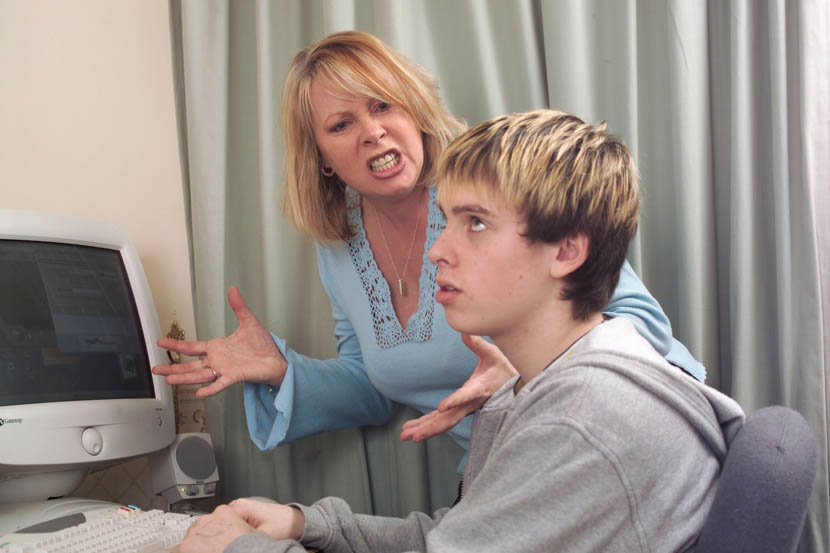 Both the IUD and the implant last for years (depending on the type) and are completely reversible.
Both the IUD and the implant last for years (depending on the type) and are completely reversible.
Support breastfeeding
Breast milk is the best nutrition for babies. In fact, the American Academy of Pediatrics and Centers for Disease Control and Prevention recommend that moms of any age exclusively breastfeed for the first six months. After that, it's best to keep breastfeeding along with introducing other foods until the baby is at least one year old. Not only does breastfeeding help mothers bond with their babies, but it also promotes cognitive development.
Breastfeeding classes and support help adolescent mothers breastfeed longer. Check with your child's pediatrician or obstetrician about breastfeeding resources like a lactation consultant.
Get involved with childcare
You and your child (and possibly the other parent and grandparents) will need to sort through how much of a role you will play in caring for your grandchild. You may need to get a social worker or counselor to help with this.
Don't be afraid to step in and help parent your grandchild if that works for your family. Studies show that coparenting, which usually involves maternal grandmothers, can have positive effects on both children and grandchildren. This is especially true if you and your child have minimal conflict. The less conflict there is, the more positive the coparenting experience is for everyone.
Promote positive parent-child relationships
No matter how you feel about your grandchild's other parent, remember that positive parent-child relationships are critical for healthy child development. For your grandchild's sake, try to encourage and support the other parent's role.
Research shows that when fathers engage with their children, they positively influence their kids' behavior, intellect, and mental well-being. Kids of teen moms who stay close with their biological father do better in school and at work. They're also less depressed, and their risk of becoming teen parents themselves is lower.
Even when fathers can't help support the baby financially, they can support them emotionally and physically. And the sooner they gets actively involved with their child, the more likely it is that they'll stay involved.
Encourage play and reading time
One of the best things young parents can do with their children is to play with them and read to them. Both of these activities promote bonding and boost young kids' social and cognitive development.
Visit your local library and check out Dolly Parton's
Imagination Library, which mails a free book every month to children from birth to age five, regardless of income.
Connect with community programs
There are many government and community programs and resources out there designed to help parents and young children, such as:
Home visiting programs
Tuition and childcare assistance programs
Counseling
Social workers
Job training programs
Transportation programs
Parenting and child development classes
Healthcare
Tutoring
Babysitting services
What's available depends on where you live.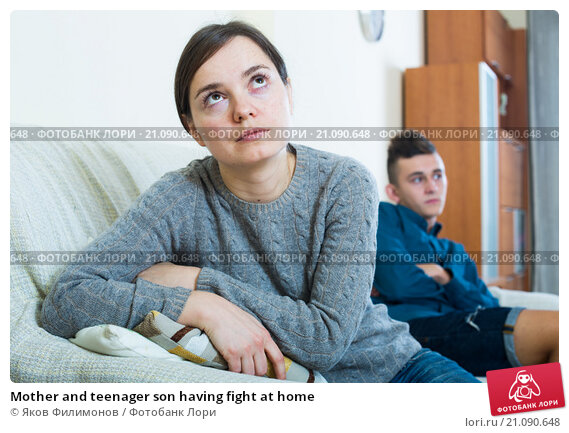 Check with your city, county, or state department of social services to start with. Your child's school may be another potential resource. It's possible you'll need to find services from a variety of
government and private resources, such as:
Check with your city, county, or state department of social services to start with. Your child's school may be another potential resource. It's possible you'll need to find services from a variety of
government and private resources, such as:
Temporary Assistance for Needy Families — Helps families with financial assistance and support services.
Child Welfare Information Gateway — Resources for parents and grandparents.
Early Head Start — Programs for kids under age 3 and pregnant women.
Nurse-Family Partnership — Connects first-time, low-income moms with a personal nurse.
Parents As Teachers — This home visiting program is for all families with young children.
Remember
Helping your child access these services can ease many of their burdens and paves the road to their success as a parent.
More information
- Caring for Teen Parents and Their Children
-
Care of Adolescent Parents and Their Children (AAP Clinical Report)
The information contained on this Web site should not be used as a substitute for the medical care and advice of your pediatrician. There may be variations in treatment that your pediatrician may recommend based on individual facts and circumstances.
There may be variations in treatment that your pediatrician may recommend based on individual facts and circumstances.
Supporting Pregnant and Parenting Teens
Pregnant and parenting teens often face challenges balancing their school, work, and home lives with being a new parent. Teen parents are at increased risk for dropping out of school, unemployment, poverty, mental health issues, and child care concerns. Ensuring that adolescent parents receive adequate social, emotional, medical, and academic support is essential to the parent and the baby’s future. On this page, find information on expectant and parenting teens in out-of-home care and ways to support them. Resources include State and local examples.
Addressing the Needs of Pregnant and Parenting Youth in Foster Care: A Primer on Interagency Collaboration for Children’s Bureau Grantees
Capacity Building Center for States (2019)
Explains the services offered to pregnant and parenting youth in out-of-home care by the John H. Chafee Foster Care Program for Successful Transition to Adulthood and the Adolescent Pregnancy and Parenting Program. This tip sheet provides strategies for using both programs together to improve outcomes for pregnant and parenting youth in out-of-home care.
Chafee Foster Care Program for Successful Transition to Adulthood and the Adolescent Pregnancy and Parenting Program. This tip sheet provides strategies for using both programs together to improve outcomes for pregnant and parenting youth in out-of-home care.
Challenges, Benefits Found in Providing Home Visiting Services for Pregnant and Parenting Foster Youth
Chapin Hall (2021)
Presents the results of a study that shows adolescent parents in foster care needing additional support, and one way to provide this support is through community-based home visiting programs. Outcomes from these interventions show positive effects in the areas of parent-child attachment, child and maternal health and development, parenting skills, and social support.
Connecting the Dots: A Resource Guide for Meeting the Needs of Expectant and Parenting Youth, Their Children, and Their Families
Center for the Study of Social Policy (2019)
Offers information on interventions and services for expectant and parenting youth involved with the child welfare system to help improve parent and child well-being outcomes.
Helping Teen Parents and Their Children Build Healthy Futures
HealthyChildren.org (2017)
Discusses teen parenting, including how to prepare teens for parenthood, the importance of getting young fathers involved, what to expect in the future, and more.
Leveraging the Family First Prevention Services Act for Older Youth: Prevention Provisions
American Bar Association (2019)
Explains provisions of the Family First Prevention Services Act that will impact older youth, including the use of title IV-E funds to provide services to youth in foster care who are pregnant or parenting.
What Are Some Strategies for Supporting Pregnant and Parenting Teens in Foster Care?
Casey Family Programs (2018)
Examines challenges faced by child welfare agencies that are working with pregnant and parenting teens in foster care and discusses effective programs for this population that aim to ensure the healthy development of the teen parent and the child.
When Your Teen is Having a Baby
KidsHealth.org
Provides information for parents whose teens are pregnant or recently became parents. The website includes information on what parents may be feeling, what teens may be feeling, and special considerations for pregnant teens.
(Back to Top)
For Young Parents
ShiftNC
Shares information on the education and medical rights of pregnant and parenting teens in North Carolina who are currently in school. The resource also offers information on where teen parents can access support resources such as, finding child care, finding support groups, financial benefits, and recommendations to stay healthy.
Overview of Policies and Considerations for Case Managers Working With Foster Youth Who Are Parenting
Florida Institute for Child Welfare
Presents a guide for child welfare caseworkers in Florida on working with pregnant or parenting youth who are transitioning out of the foster care system.
Parent Connection
Family Services
Highlights the Parent Connection program in Wisconsin designed to support teen parents and their children that offers the following programs, Parents as Teachers for teen parents, teen parent mentoring program, fatherhood programs, and young parent group and workshops.
Pregnant and Parenting Youth
Washington State Department of Children, Youth & Families (2019)
Provides guidance to child welfare workers engaged with expectant or parenting teens to ensure a successful transition to adulthood.
Providing Home Visiting to Parents in Care: The Illinois Pregnant and Parenting Youth in Care Home Visiting Pilot Experience
Children’s Home & Aid
Describes a home visiting program in Illinois that serves pregnant and parenting youth in care and links to a full report on the outcomes of the pilot program.
Teen Parenting
Los Angeles County Department of Children and Family Services
Offers information on supports for pregnant and parenting teens, especially those involved with child welfare services, in L. A. County, California.
(Back to Top)
"Mom, go away!" 10 Signs Your Teenager Needs Help
The child is silent, doesn't make eye contact, cuts his or her arms, or has found a life-threatening pastime such as hooking. How to distinguish adolescence crisis from dangerous behavior or suicidal tendencies? "Pravmir" publishes an excerpt from Anna Leontyeva's book "I believe that it hurts you!", Which was published by the publishing house "Nikeya".
Anna Leontieva
Long-term depressed state
It is quite natural for a teenager to “close himself in a room” (conditionally or physically) - to avoid communication, to be sad, not to answer questions, not to rejoice at what he used to be happy about. This also includes a sharp change in any typical behavior of the child: for example, he was always collected - he became absolutely absent-minded, as if "with an empty head." He liked to communicate - now he avoids companies.
The question is how long this condition lasts and how much it interferes with the child's life in his normal routine. And here the contact between the child and the parent is very important.
Of course, keeping a finger on the pulse does not mean controlling, flooding a teenager with your anxious concern or bursting into his room with an offer to talk heart to heart. All these actions, according to the categorical code of rules of a teenager, are subject to immediate condemnation, without any extenuating circumstances. And we must be prepared for the fact that we will hear, perhaps, the most common teenage phrase: “Please close the door!”
But it is very important not to be left on the other side of the door when our help is really needed.
In a situation of depression, it is necessary to try to talk to a teenager very gently, tactfully and delicately. If the depressed state, excessive closeness, the child's isolation lasts more than two weeks, this is a reason to turn to a psychologist.
Lack of self-preservation instinct
Children often feel invulnerable: "Nothing will ever happen to me. " But at the same time, if at the age of 6-8 they want to be firefighters, submariners or pilots, then at the age of ten the instinct of self-preservation already begins to appear: children gradually realize that the plane can crash, and people are locked in a submarine for several months. This instinct of self-preservation is present even in the most daredevils.
If this instinct does not seem to manifest itself in a teenager, if he constantly climbs into places where it is too dangerous, if he becomes a parkour and hooker, this is a serious sign that cannot be ignored and simply attributed to character and temperament.
Some children play very dangerous games, and parents don't even know that their son is a hooker on the roof of an electric train or a player in "run or die" (when a teenager has to cross the road right in front of a fast moving car for a phone shot).
However, games on the verge of life and death are, as psychologists are convinced, a way to drown out the pain of loneliness.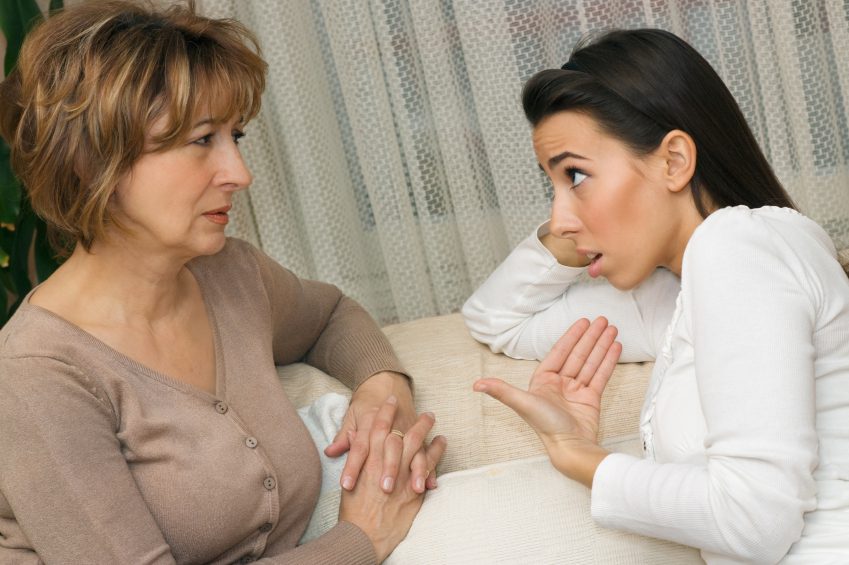
The story of a resuscitator from the center of Roshal:
“We rescued a hooker girl who fell off the train. Everything that needed to be sewn up inside was sewn up, the condition is stable - but she lost her right arm.
And now the girl comes to her senses after anesthesia, I am sitting by the bed. I have a second education - psychiatry, a huge work experience, but even I wait with horror for her awakening and understand that her physical salvation is only the beginning. Then she must live with it, and above all - survive the fact that the hand is now one!
And then she opens her eyes, smiles at me after sleep — and then she turns her head to her right shoulder, sees that there is nothing there… she turns pale. And I understand that this is where the real work to save her begins! And parents should continue it after they discharge it from us…”
Self-injurious behavior
admiring them is a very serious sign of a difficult internal state, when a person is inclined to express his internal tensions and emotions literally - through the body.
Sometimes adolescents describe it like this: “to drown out the inner pain, I need to inflict physical pain on myself”, “I would like not to be - I can’t bear it, I don’t know what is happening to me.”
Cuts, by the way, are more common among girls. Boys have a different reaction to internal pain - they fight, throw out their aggression outside. Girls, on the other hand, are usually told that they can’t fight, that a girl should be decent, so they hurt themselves.
Cuts do not always indicate a suicide attempt. Often it is an exploration of pain, an exploration of one's body.
But cuts are always a reason to go to a specialist and find out how dangerous the situation is!
Adolescent psychologist's story:
“Once I asked a female patient about the cuts on her hands: “Did your mother see your hands?” “Yes, I saw it.” “And what did she tell you?” “I told my mom it was a cat.” - "And she?" “She believed.” But a cat doesn't scratch like that! Obviously it's not a cat.
Why does mom look at the situation “eyes wide shut”? Either she does not want to see it and is afraid to admit to herself that something is wrong with the child, or she understands everything, but does not know how to react, or she does not have time at all to look at the child and show him at least some attention…
Parents often find out that a teenager has a real problem, when it is already very difficult to help, when it is not a child who enters the psychotherapist's office, a problem enters. With many side effects, only thanks to which her parents saw her ... "
Tail future
When we talk to a child about the future, we can ask him: “How do you imagine your life, our life in five years?”
One of the signs of depression is the so-called tail future - a "shortened future", when the child does not have the feeling that there is something in this future.
However, when talking about the future, everything depends on your existing relationships. If the child feels that this is not a dialogue, but an attempt to impose something on him (in the format: “Well, will you be a loafer or a plumber - or will you finally get down to business?”) - he will close.
If the child feels that this is not a dialogue, but an attempt to impose something on him (in the format: “Well, will you be a loafer or a plumber - or will you finally get down to business?”) - he will close.
Try to talk to him about what really worries him, try to hear his opinion and his desires, even if they seem completely “frivolous”.
Desire to talk to a psychologist
Sometimes outwardly everything looks good in a child - he studies normally, communicates with friends, has a good appetite. And suddenly he says that he would like to "talk with someone, for example, with a psychologist."
Oddly enough, sometimes parents consider this to be a whim, fashion and the like. Sometimes such a desire of a child can strain parents, especially if they themselves do not really trust psychologists - they say, just spend time and money, we'll figure it out for ourselves.
But, please, this is very important! If a child wants to talk to a psychologist, then you need to run to a psychologist at the same second, without delay.
If he has reached the point where he already understands the need for help, it is impossible, absolutely impossible to answer: “Are you sure? So it's still okay. You are an excellent student…”
His conscious need for help means that he has gone through and survived more than one stage of his inner pain and his resources are running out!
Eye contact avoidance
One of the signs that the child is in some serious pain is that he cannot talk while looking into his eyes.
Of course, there are exceptions, but in general, usually those teenagers who communicate easily, talk easily, have a warm relationship with their parents. Because their parents also easily and willingly talk to them. One of the criteria for how depressed a teenager is is how long he can be in contact at all.
There is a very extreme case - teenagers who absolutely cannot withstand eye contact. If you ask: "Why don't you look at me?", he replies: "I'm not used to looking at people. I hate looking at people. I don't want to look at people." This is a warning sign.
I hate looking at people. I don't want to look at people." This is a warning sign.
One of the psychologists said that a girl came to him and immediately started crying if he looked into her eyes during a conversation. It showed that she was in terrible pain. And she could open up only to someone to whom she could entrust this pain, to someone who could at least somehow share this pain.
Anorexia and other eating disorders
Many psychologists classify anorexia as suicidal behavior. In fact, behind the eating disorder there is always some deep problem and inner pain of a teenager, and this is his cry for help and an attempt to get what he lacks. This is manipulative behavior, behind which is the inability to receive love in other ways.
A teenager is trying to draw attention to an invisible pain with a visible problem.
Indeed, when eating disorders begin, parents finally understand that "something is wrong."
However, most often they try to solve the problem externally - to feed the child by all means. But suffering from anorexia, first of all, it is not food that is needed, but attention and love. <…>
But suffering from anorexia, first of all, it is not food that is needed, but attention and love. <…>
The child indirectly or openly speaks about the desire to part with life
As a rule, this is how a teenager unconsciously checks whether they will dissuade him, whether they will manage to save him?
Never underestimate such words, let alone make any rash comments. Indeed, in this way, a teenager actually shows you what awaits your help and attention. Not finding them, he can give up all hope of understanding and bring his plan to the end.
The child begins to actively distribute his things
This is a very bad sign, already, if I may say so, a classic example that something in his psyche is developing wrong, this is a reason to urgently turn to a specialist.
This is already, as a rule, a running stage of the process, which we did not notice in time.
Parental intuition
There are signs that are very difficult to explain. Sometimes, in a conversation with a child, a parent can not only emotionally, but even physically feel that something is happening, literally feel with his skin how bad the child is. It works if there is this sensitivity and, of course, if there is a connection with the child. And these feelings cannot be ignored. By the way, they are not only with parents, but also with psychologists.
Sometimes, in a conversation with a child, a parent can not only emotionally, but even physically feel that something is happening, literally feel with his skin how bad the child is. It works if there is this sensitivity and, of course, if there is a connection with the child. And these feelings cannot be ignored. By the way, they are not only with parents, but also with psychologists.
“For experienced psychologists, feeling a patient with their skin is almost a professional deformity,” says psychotherapist Konstantin Vladimirov. - The patient may smile or laugh, but when I look into his eyes, I see his trouble from what is happening to me. He laughs and makes me sad. I physically feel that under this laughter ... Then I understand: “Stop! What you say doesn't matter now! You are worried about something much more, but for some reason you are silent about it. When I voice it, as a rule, the patient cries ... "
Such sensitivity of a parent towards a child is developed in the family when everyone communicates, talks, interacts.
If parents are open to their children and can share their feelings and anxieties, then the children will be ready to talk about theirs.
This can be learned - and then the parent gets access to what has no form.
Unfortunately, parents cannot always be insightful, wise and all-seeing. Sometimes they notice trouble when it has already entered the family.
Professionals who work with adolescents, such as those who use drugs or suffer from anorexia, say they are usually dealing with the consequences, if not the side effects of the consequences.
The problem itself can grow gradually and imperceptibly, like a tumor in the body. Or it can arise suddenly and vividly, as a reaction to an event - the loss of a loved one, unhappy love, a failure in some area.
But sometimes a problem can be identified by some signs. In any case, all this requires an extremely serious attitude, the exertion of spiritual parental strength and, in many cases, the participation of a good psychotherapist and / or psychiatrist.
Photo: pexels.com
Since you are here...
We have a small request. This story was told thanks to the support of readers. Even the smallest monthly donation helps editorial work and create important content for people.
Your help is needed now more than ever.
Mom and teenage daughter: building a harmonious relationship
It seems like yesterday you were braiding your little daughter, taking her to kindergarten, first grade, music school, and today she diligently hides a piercing in her navel, tunnels in her ears or a tattoo on her back, and from school she is met by a young man who is five or seven years older than her, and with him, of course, she has a serious relationship and love for life. And you all perfectly understand: this is teenage self-affirmation, self-identification, transitional age and rebellion, but you still fall into hysterics and are ready to “kill” it on the spot . ..
..
What to do?
The first and most important thing is to calm down. Deep inhale, slow exhale. And now let's figure out what and where went wrong and what to do about it. It must be understood that from childhood, a mother for her daughter is the only role model. But the stages of interaction change, the daughter undergoes internal changes in her perception of herself, various identification processes. Different perceptions of a mother by a daughter at the age of 2, 5, 12, 17 and so on, of course, can leave their mark on these relationships. The attitude towards the mother can be contradictory - the daughter is proud of her mother, praises her and loves her. But at the same time, the mother in the eyes of her daughter can act as an offender, an encroachment on her internal boundaries. Rapprochement and distance, resentment and an inexhaustible feeling of love, guilt and apathy, fatigue and hopelessness - there is a wide range of feelings in the relationship between mother and daughter.
The desire to separate and at the same time feel the support of the mother - this is what the daughter tries to combine and keep. The position of the mother can be different: cold alienation, indifference, or strong control, an encroachment on the daughter's personal space. The process of bringing mother and daughter closer and further away might unfold like a dance, but more often there is a fierce struggle for similarity and dissimilarity, from which both sides suffer. And many conflicts between mother and daughter are passed down from generation to generation. In these relationships, there is no equality as such - neither the mother nor the daughter is aware of their unconscious hidden motives. They can only intuitively feel that something is not right.
We can only give a few tips that will help you build a line of behavior with your daughter. However, no one knows and cannot judge your relationship better than you, so the degree of mutual understanding and trust in your communication depends only on both of you.
1. Attention to appearance.
Doubt in their external attractiveness is a common problem for a teenage girl, the source of many complexes and failures in her personal life. No matter what external data nature has awarded your daughter, you must educate her from the most tender age in the belief that she is a beauty. Highlight your merits. Do not laugh at her shortcomings: fullness, freckles, snub nose - all these are unique features of her personal charm.
Of course, there is no need to overdo it in this matter either. You do not want your daughter to suffer from inflated conceit, which is rare, but it happens.
Do not stop your daughter in the first experiments with cosmetics, let her try lipstick, shadows, and mascara. Help her, teach her how to use cosmetics correctly. If possible, go to a professional makeup artist together.
If your daughter is overweight, sign up for a gym, aerobics, and yoga together. She is unlikely to walk alone, and a friend may not support in this matter.
In adolescence, it is better to try to become a friend and senior mentor to your daughter. Then she will get used to consulting with you in matters relating to appearance, and you will discuss and weigh all the pros and cons of this or that step without sharp denial.
2. Love in the family is the guarantee of a daughter's personal happiness.
Rigorous upbringing has its costs. In particular, a generation of women raised by super-demanding parents cannot shake the notion that love must be earned. Hence the excessive diligence, the complex of the victim and the inability to simply realize oneself loved. Deprived in childhood of obvious manifestations of parental affection, the girl, like a butterfly, will fly to the first light of the light that seems to her love. Consequently, she can become the prey of any rogue who is not too lazy to stroke her head and say a couple of gentle words.
A girl needs to be pampered, but of course, set a certain limit. She must realize that she is loved. The one who is loved will learn to recognize dislike and will instinctively avoid the atmosphere of dislike. This is the key to her personal happiness.
She must realize that she is loved. The one who is loved will learn to recognize dislike and will instinctively avoid the atmosphere of dislike. This is the key to her personal happiness.
3. Talk!
Every mother always has a lot to do and work. But, despite the busyness, we must not forget to communicate with your child. Create an atmosphere for communication. For example, in the evenings on a soft sofa, have a tea party and discuss how the day went. Don't forget to share some of your affairs and problems. Let your daughter feel like a full-fledged interlocutor, give you advice. Often, the advice of a child with a completely different outlook on life can help you in what seems to be the most intractable tasks.
Learn to listen to each other without criticism. Be interested in what your daughter is interested in. She should feel free to express her thoughts and feelings, even if they are different from yours. By respecting your daughter, you will help her learn to respect herself and you.
Communicate more: discuss the news of the day, interesting articles in magazines and other issues of general development. Often parents complain about the poor horizons of the child, while doing absolutely nothing to help him expand this horizons.
Discuss safety rules. Teach your daughter to understand people and situations. Do not intimidate, but warn against being too gullible. The wise learn from the mistakes of others. Talk to your daughter about dangerous cases in the life of your friends, about what you know from the press. Let her learn to avoid everything that threatens life, health, reputation.
And of course, don't be afraid to get personal. Gently ask if she has a boy friend, if she is in love, tell us about your experience of first falling in love.
4. Cultivate kindness and charity.
Teach the girl to notice someone else's pain. Let her do her best to help the weak and the sick. Do not be afraid to pull back sharply if your daughter makes fun of someone's shortcomings. Children can be cruel without realizing it. Encourage the desire to help. Do not flatly refuse if a girl brings a homeless puppy, kitten or bird to the apartment. Caring for pets is a wonderful training in mercy. If leaving the animal in the house is not possible, try to find a home for him together.
Children can be cruel without realizing it. Encourage the desire to help. Do not flatly refuse if a girl brings a homeless puppy, kitten or bird to the apartment. Caring for pets is a wonderful training in mercy. If leaving the animal in the house is not possible, try to find a home for him together.
And, of course, explain to the child that you need to take care of your loved ones. It is better to show this by example, taking care of elderly relatives, close people, friends. But do not forget about the balance of mercy and prudence. Not everyone who asks really needs the help he asks for.
5. Develop economy and independence.
Someday your daughter will become a completely independent girl and, most likely, will live separately from you. Therefore, from adolescence, and preferably earlier, it is necessary to instill responsibility for housekeeping. It is not so difficult to instill in a girl the skills of washing and cleaning, cooking and sewing.
First, teach her how to clean her room. Explain to her that her room is her personal space, and she is responsible for this space, and its condition must comply with the rules of the whole house. If frequency and order are observed throughout the house, then her room should be cleaned as much as possible. The point is small: do not forget to keep order in the whole house yourself.
Cooking is one of the most exciting activities. Choose recipes together, ask your daughter what she likes, try something new. Of course, a teenager who is constantly trying to dodge household chores and runs to friends at every opportunity is difficult to attract to cooking. So improvise. If possible, invite your daughter's friends and arrange a cooking club. Or hold a competition in several stages (for example, every Sunday for a month), who will cook the tastiest, and let the other inhabitants of the house evaluate the dishes. Set a prize - something your daughter wants to have for a long time. Remember, you are the main example for your daughter.
Remember, you are the main example for your daughter.
6. Your daughter is an individual.
To identify and develop individuality in a child is perhaps one of the most difficult activities. Contribute to the development of the daughter's personality, but do not try to break her personality. You have planned, by all means, to bring up a lawyer or a doctor in the family, and your daughter writes poetry and loves solitude. You dreamed of a musician and singer, but she loves horses and is preparing herself for a modest career as a rural veterinarian. Support the positive that is clearly and steadily manifesting in your child.
Do not prevent your daughter from going to the goal she has chosen. You can and should give your opinion if you don't like this goal or if you feel it's a mistake. But it will be her mistake, and she will have to go through it herself, experience this experience, in order to then move on, already a wiser person. And you, as a loving mother, will be there, support and help in any way you can.
Accept your daughter's independence. She is an independent person and you have to accept the fact that she can make her own decisions. Follow her activity. Be interested in her hobbies, help, but do not impose.
7. Don't push your daughter's friends away
Almost all mothers do not like their daughter's friends, and even more her young people. Keep in mind that these negative emotions in most cases are more likely to be caused by jealousy or over-anxiety than by actual real danger. We are afraid of what we do not know.
Get to know your daughter's friends, invite them for tea, Sunday lunch, have a small party, set up time limits with your daughter, and ask to be allowed to stay home for the first time to greet guests. Set yourself up for a positive attitude towards friends, because you, as a mother, will be ready for the negative anyway.
Your daughter has a boyfriend. Not every daughter wants to introduce her friend to her mother. You need to assure her that you are interested in her choice, that you obviously treat him well, since her daughter chose him. Even if it is not, you will have to use all your acting skills to convince her of this. Because the main thing is to get to know a person well and only then draw conclusions!
You need to assure her that you are interested in her choice, that you obviously treat him well, since her daughter chose him. Even if it is not, you will have to use all your acting skills to convince her of this. Because the main thing is to get to know a person well and only then draw conclusions!
Express your opinion, but do not drastically forbid this or that communication, unless, of course, your daughter is in danger. If you are still sure of this, contact the experts.
8. Create your common traditions.
Nothing brings people together like traditions that have developed over the years. Create traditions that only you and your daughter will have. You can, for example, go skiing together every winter, go to the cinema together once a month, go to the pool together once a week, or spend a day for yourself every March 8, visiting a beauty salon, going to the park, to nature, to your grandmother’s house. dacha. Find something that will be of interest to both of you.
